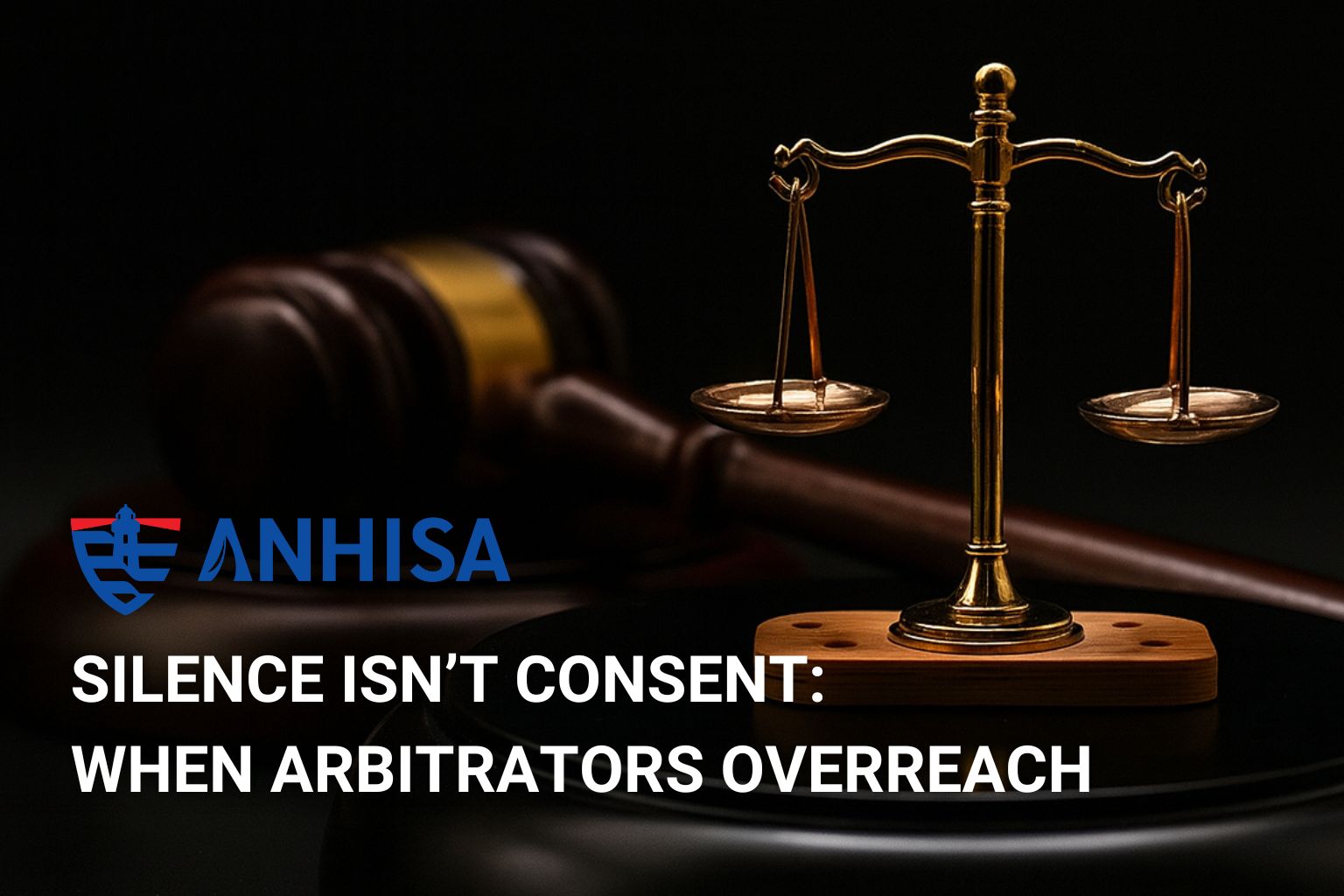In the realm of arbitration, party autonomy—the principle that parties freely choose how to resolve their disputes—is paramount. No party should be compelled into arbitration without clear, mutual, and explicit consent. This fundamental principle dictates that arbitration agreements must be unequivocally written and enforceable.
This principle was reinforced in Stolt-Nielsen S.A. v. AnimalFeeds Int’l Corp., 559 U.S. 662 (2010)[1], where the U.S. Supreme Court ruled that an arbitration panel exceeded its authority by imposing class arbitration on parties who had not agreed to it. The Court made clear that arbitration must be grounded in contractual consent, not arbitrators’ policy preferences.
Yet, a recent decision by a Can Tho arbitration tribunal has raised serious concerns regarding the interpretation of arbitration agreements in Vietnam. In this case, the tribunal erroneously ruled that a party’s failure to object during informal exchanges constituted implied consent, despite their subsequent formal objection. The tribunal broadly applied Article 7(2) of the UNCITRAL Model Law[2], as adopted by Vietnam, stretching its scope beyond its intended meaning, threatens the integrity of arbitral jurisdiction by allowing tribunals to assert authority where no valid agreement exists, fundamentally undermining the bedrock of voluntary arbitration.
The Case: Silence Misconstrued as Agreement
In 2008, two companies, NL and ĐL, signed a business cooperation contract for a real estate project in Can Tho. Their contract explicitly required disputes to be settled by Vietnamese courts, not arbitration.
A decade later, in 2018, a dispute arose. NL initiated arbitration at the Can Tho Commercial Arbitration Center, claiming that both parties had agreed to arbitration in a 2018 meeting memorandum. ĐL strongly objected, arguing that their original contract still required disputes to be resolved in court.
Despite this formal objection, the tribunal ruled in favor of arbitration, reasoning that ĐL’s failure to object earlier in informal communications (specifically, in meeting minutes) constituted an arbitration agreement.[3] This interpretation, however, is fundamentally flawed.

The Tribunal’s Misinterpretation
When interpreting Article 16(2)(dd) VN Commercial Arbitration Act 2010, the tribunal likely hinged on Article 7(2) of the UNCITRAL Model Law, which states:
“An agreement is in writing if it is contained in a document signed by the parties or in an exchange of letters, telex, telegrams, or other means of telecommunication which provide a record of the agreement, or in an exchange of statements of claim and defense in which the existence of an agreement is alleged by one party and not denied by another.”
At first glance, the tribunal’s reasoning might appear plausible. It likely assumed that “alleged by one party and not denied by another” applied broadly, meaning that an agreement could be inferred from informal exchanges (e.g., emails, meeting minutes) if one party did not object.
However, a closer analysis reveals why this was a misreading of the provision.
Why the Tribunal Was Wrong
1. The Clause “Alleged by One Party and Not Denied by Another” Applies Only to Formal Legal Pleadings
Article 7(2) requires arbitration agreements to be in signed documents, exchanges of written communications, or implied through legal pleadings (i.e., statements of claim and defense).
The phrase “in which the existence of an agreement is alleged by one party and not denied by another” refers only to the last condition, not the entire clause.
This means that silence in informal discussions cannot override an explicit objection in formal arbitration pleadings. If it did, any party could manufacture consent simply by asserting an arbitration agreement and waiting for the other side to fail to object.
2. Vietnamese Law Reinforces This Interpretation
In fact, Vietnam’s Commercial Arbitration Act 2010[4] (Article 16(2)(dd)) states:
“An arbitration agreement is valid if it is contained in an exchange of a statement of claim and statement of defense in which the existence of an agreement is alleged by one party and not denied by the other.”
This mirrors the UNCITRAL Model Law and confirms that the rule applies only to formal arbitration pleadings—not earlier business discussions. Since ĐL formally objected in its defense submission, the tribunal should have dismissed the case.
3. International Arbitration Law Supports a Narrower Interpretation
If this case were heard in Singapore, the UK, or Hong Kong, it has could likely have dismissed.
- Singapore (International Arbitration Act, Section 2A(6))[5]: “Where in any arbitral or legal proceedings, a party asserts the existence of an arbitration agreement in a pleading, statement of case, or any other document in circumstances in which the assertion calls for a reply and the assertion is not denied, there is deemed to be an effective arbitration agreement between the parties.” This provision specifically limits the scope of implied consent to formal legal documents.
- UK (Arbitration Act 1996, Section 5(5))[6]: “An exchange of written submissions in arbitral or legal proceedings in which the existence of an agreement otherwise than in writing is alleged by one party against another party and not denied by the other party in his response constitutes an agreement in writing.” The key phrase here is “written submissions in arbitral or legal proceedings” demonstrating the need for formal legal processes.
- Hong Kong (Arbitration Ordinance, Section 19(6))[7]: “An arbitration agreement is in writing if it is contained in an exchange of statements of claim and defense in which the existence of an agreement is alleged by one party and not denied by the other.” Once again, the focus is on formal legal documentation.
These jurisdictions unequivocally restrict implied agreement to formal legal pleadings, not pre-arbitration exchanges, reflecting a consistent international approach to this issue.

The Court’s Correction: Setting Aside the Award
The Can Tho Court correctly set aside the arbitral award, ruling that:
- There was no valid arbitration agreement.
- The tribunal misapplied Article 16(2)(dd) of the Commercial Arbitration Act by treating silence in business discussions as consent.
- ĐL’s formal objection negated any implied agreement.
The court reaffirmed that arbitration remains voluntary and that silence in informal negotiations cannot override a clear objection in legal pleadings.
Practical Takeaways: How to Avoid This Risk
The Can Tho case is a cautionary lesson for businesses and legal practitioners. To avoid similar risks:
Explicitly Define Arbitration Agreements: Ensure contracts contain clear and unambiguous arbitration clauses.
Document Objections in Writing: Immediately object in writing to any suggestion of arbitration, both in informal communications and during legal proceedings.
Avoid Assumptions: Do not assume that informal discussions create binding obligations.
Understand Local Law: Seek expert local legal advice for contract drafting and dispute resolution.
Train Staff: Conduct comprehensive training on arbitration agreement formation, covering topics such as:
- The importance of written agreements.
- The distinction between formal and informal communications.
- The legal implications of silence.
- Proper documentation procedures.
Final Thoughts: Upholding Party Autonomy
Arbitration depends on mutual consent. The Can Tho tribunal’s attempt to infer an agreement from silence undermined party autonomy and misapplied arbitration law.
While arbitration-friendly jurisdictions recognize implied agreements in formal pleadings, they do not allow tribunals to manufacture consent from pre-dispute silence. The Can Tho Court was right to set aside this award, ensuring that arbitration remains a choice, not an imposition.
If you have encountered arbitration disputes involving ambiguous jurisdiction, let’s discuss how to structure arbitration agreements that protect your interests.
[1] Stolt-Nielsen S. A. v. AnimalFeeds Int’l Corp. | 559 U.S. 662 (2010) | Justia U.S. Supreme Court Center
[2] UNCITRAL Model Law on International Commercial Arbitration 1985, With amendments as adopted in 2006
[3] Nhẫn Nam, “Arbitral Award Set Aside Due to Lack of Agreement”, Pháp Luật TP. HCM, May 27, 2019
[4] Vietnam’s Commercial Arbitration Act 2010
[5] The Singapore’s Arbitration Act 2001
[6] The UK’s Arbitration Act 1996
[7] The Hong Kong’s Arbitration Ordinance 2014
AUTHORS
TRUONG CONG HONG
Senior Associate
Mobile: (+84) 909 814090
Email: [email protected]
This article aims to furnish our clients and contacts with general information on the relevant topic for reference purposes only, without creating any duty of care on the part of ANHISA. The information presented herein is not intended to serve, nor should it be considered, as a substitute for legal or other professional advice.
ANHISA LLC AND OUR EXPERTISE
ANHISA LLC is a boutique law firm specializing in Dispute Resolution, Shipping and Aviation. Being the leading lawyers in various fields of law, our qualified, experienced, and supportive team of lawyers know how to best proceed with a case against or in relation to Vietnamese parties and are well equipped to provide clients with cost-effective and innovative solutions to their problems.
Regarding dispute resolution, we have represented Vietnamese and foreign clients in the resolution of disputes involving maritime, construction, commercial and civil matters. Our lawyers are well-equipped to offer services on a wide range of disputes and conflicts, whether cross-border or purely domestic, to appear before any Judges or Arbitral Tribunals. The firm is prepared to assist clients in designing the appropriate dispute resolution procedure to help resolve conflicts as efficiently and cost effectively as possible, which may involve combining elements of mediation and other methods such as arbitration.
